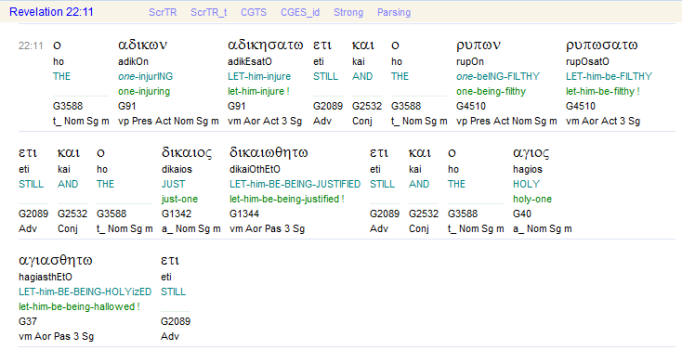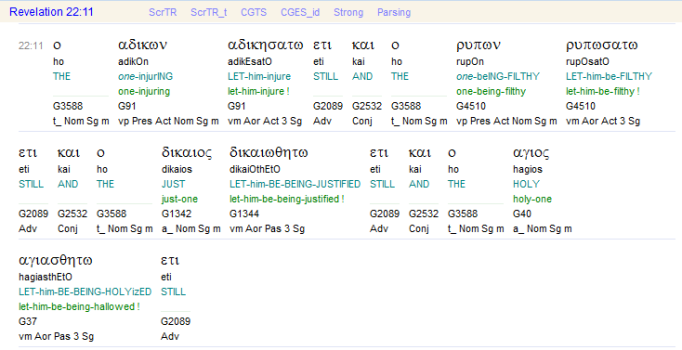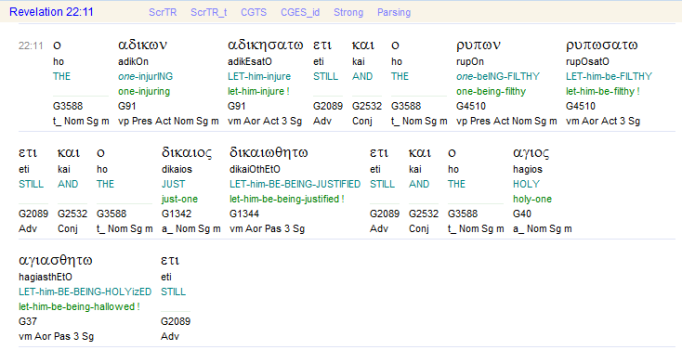Revelation 22:11 in
Scrivener's Textus Receptus:
Scrivener's Textus Receptus:
Ὁ ἀδικῶν ἀδικησάτω ἔτι· καὶ ὁ ῥυπαρὸς ῥυπανθήτω ἔτι· καὶ ὁ δίκαιος δικαιοσύνην ποιησάτω ἔτι· καὶ ὁ ἅγιος ἁγιασθήτω ἔτι.
Parsing with Grammar:
Ὁ (Article, Nominative, Masculine, Singular) - "The"
ἀδικῶν (Participle, Present, Active, Nominative, Masculine, Singular, ἀδικέω) - "one doing wrong/unrighteous"
ἀδικησάτω (Verb, Aorist, Imperative, Active, 3rd Person, Singular, ἀδικέω) - "let him do wrong/unrighteous"
ἔτι (Adverb) - "still/yet"
καὶ (Conjunction) - "and"
ὁ (Article, Nominative, Masculine, Singular) - "The"
ῥυπαρὸς (Adjective, Nominative, Masculine, Singular) - "filthy/vile"
ῥυπανθήτω (Verb, Aorist, Imperative, Passive, 3rd Person, Singular, ῥυπαίνω) - "let him be made filthy"
ἔτι (Adverb) - "still/yet"
καὶ (Conjunction) - "and"
ὁ (Article, Nominative, Masculine, Singular) - "The"
δίκαιος (Adjective, Nominative, Masculine, Singular) - "righteous"
δικαιοσύνην (Noun, Accusative, Feminine, Singular) - "righteousness"
ποιησάτω (Verb, Aorist, Imperative, Active, 3rd Person, Singular, ποιέω) - "let him practice/do"
ἔτι (Adverb) - "still/yet"
καὶ (Conjunction) - "and"
ὁ (Article, Nominative, Masculine, Singular) - "The"
ἅγιος (Adjective, Nominative, Masculine, Singular) - "holy"
ἁγιασθήτω (Verb, Aorist, Imperative, Passive, 3rd Person, Singular, ἁγιάζω) - "let him be made holy"
ἔτι (Adverb) - "still/yet"
Explanation:
Both Scrivener's Textus Receptus and other versions of the Textus Receptus typically share the same wording, especially for a verse like Revelation 22:11. The parsing with grammar for this verse will remain consistent across these versions. The slight differences, if any, would typically be in orthography or minor textual variations, but for Revelation 22:11, there is no such difference noted.
Looks we have a problem with the Passive and Active with the Imperative @marks




